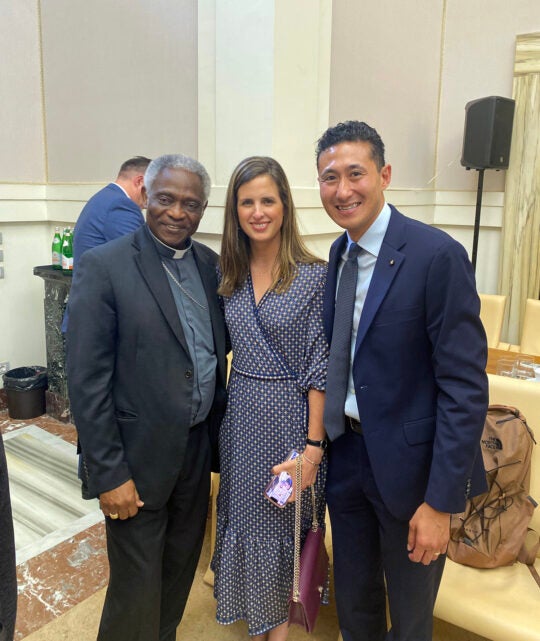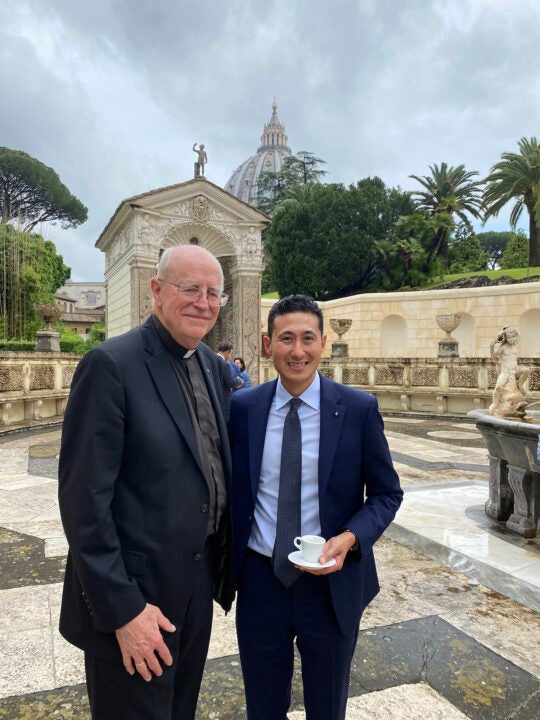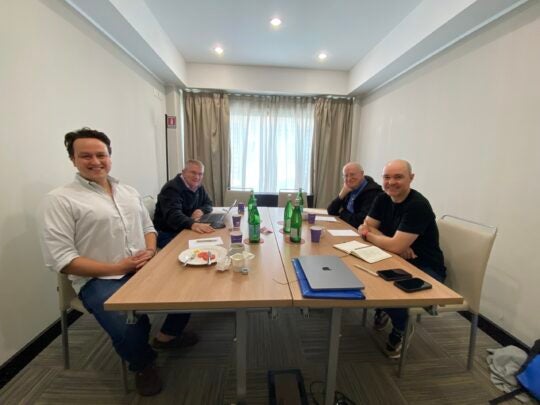
Exploring the role of the Catholic intellectual tradition in guiding the ethics of digital technologies
An initiative from the Institute for Advanced Catholic Studies at USC in partnership with the Human Flourishing Program at Harvard University and the Domus Communis Foundation in Rome, under the patronage of Cardinal Peter Turkson, chancellor of the Pontifical Academies of Science and Social Sciences.
New and emerging digital technologies offer the potential to address global challenges and provide positive impact across our society. At the same time, however, they also can pose unprecedented harms to individuals, societies and our natural environment. Too often, the development of new technology is not accompanied by ethical reflection.
Humanity faces the risk that ongoing technical innovations will direct human activity rather than serve it. Without a comprehensive ethical framework, these rapid advancements can promote inauthentic progress, spread misinformation, sharpen inequalities and leave the marginalized behind. On the other hand, a far-reaching moral vision could set these technologies towards minimizing harm and serving integral human development.
“Humanizing Networks: Human Fraternity in the Digital Age” is led by IACS, the Domus Communis Foundation and the Human Flourishing Program at Harvard University.
The project includes symposiums that bring together technology experts, academics, public officials, spiritual leaders and business executives from across the globe. A convening in December 2024 at the Vatican will explore how emerging technology at work, school, and in our civic lives is re-shaping society, and how corporate governance, public regulation, industrial policy, and virtuous investment can assure that AI and other technologies contribute to the common good.
Participants:
H. E. Cardinal Peter Turkson, Chancellor, Pontifical Academy of Science and the Ponrifical Academy of Social Sciences
Kyle Ballarta, K.M., trustee, Institute for Advanced Catholic Studies at USC, and organizer, Humanizing Networks Initiative
Richard L. Wood, Ph.D., president, Institute for Advanced Catholic Studies at USC
Dan Finn, trustee, Institute for Advanced Catholic Studies at USC
Fr. James L. Heft, S.M., founder and president emeritus, Institute for Advanced Catholic Studies at USC
Rod Beckstrom, former director of the National Cybersecurity Center and former CEO and president, ICANN
H. E. Ambassador Michele Bowe, G.C.M., Order of Malta Mission to Palestine
Edward Garcia, founder and board chair, Foundation for Social Connection
Rose Gottemoeller, former deputy secretary general of NATO
Carl “Boe” Hartman, co-founder and CTO, Nomi Health, former CTO, Marcus by Goldman Sachs
Ian Corbin, co-director of the Human Network Initiative, Brigham and Women’s Hospital & Harvard Medical School
Ron Ivey, managing director, Humanity 2.0 Institute, and visiting researcher, Harvard University
Chuck Brooks, S.M.E., Homeland Defense and Security Information Analysis
Fr. Philip Larrey, dean, Lateran University
Gregory Manuel, advisor, Google X
Danielle McLaughlin, author and senior analyst, Horizon 2045
Livia Piermatti, president, Farmafactoring Foundation
Jonathan Teubner, Ph.D., research fellow, Institute for Religion and Critical Inquiry, Australian Catholic University
John Thompson, partner, Gotham Labs
Marco Ventura, professor of law and religion, University of Siena
Steve Westly, entrepreneur, investor, corporate executive and former California state controller.
“A new model for how these conversations should happen.”
In the video below, Jonathan Teubner, Ph.D., research faculty at the Program on Human Flourishing at Harvard University, discusses “Humanizing Networks,” our project exploring the role of the Catholic intellectual tradition in guiding the ethics of digital technologies.
In December 2024, Dr. Teubner joined other experts from the fields of technology, academia, business and faith at the Vatican to discuss the profound impact of connectivity on society.
From AI to social media, Humanizing Networks will shape ethical guidelines and frameworks for a more compassionate digital future.



